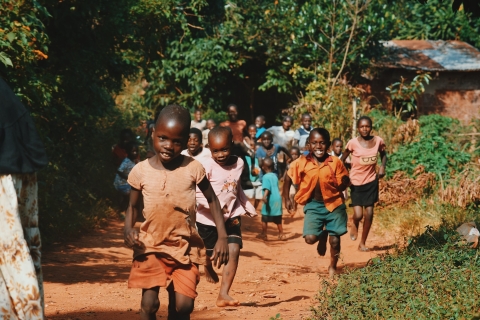
Today’s readings might be difficult for some of us. We hear about God’s anger, God’s enemies and about God choosing people over others. Are chosen people more valued? Closer to God than others? And is God on their side? Can they “boast” about this?
In the first reading we find the Israelites at the end of a long, probably hot and weary, trek in the desert. Preparing for night, they pitched their tents to face the mountain. The mountain is their connection to God, and Moses is their spokesperson. On this particular evening, God reminds them “I carried you on eagles’ wings and brought you to myself.” Imagine, such intimacy, with God! And God goes on, calling for something in return, a mutual relationship. “If you listen and keep my covenant then out of all people you will be cherished, a holy, consecrated nation.”
Paul assured the Romans that Jesus died for all, not just some chosen people, but sinners too. As Jesus moved from place to place, teaching and healing, he noticed that people were harassed and dejected. His inclusive love and mercy challenged authority and cost him his life.
Jesus died for all, including those others we might be tempted to call sinners, while we think of ourselves as the chosen, closer to God. Yes, we are chosen, loved, and precious. But so is each other person. There is no competition for love. Our sin is believing that I/we/our side is chosen, right, and you and yours are wrong, less than, not to be respected.
Jesus knew there was so much to be done and knew he could not do it alone. He called his friends and sent them out. Years ago, a group of school children in Soweto, South Africa set out to make a difference. On June 16, 1976, thousands of black children in South Africa led a series of demonstrations about government-sanctioned apartheid within the student community, the poor quality of their education, and demanding their right to be taught in their own language. On their way to the stadium in Soweto, the students were met by heavily armed police who fired tear gas and live ammunition at them. The protests spread throughout the country and continued for several months. More than a hundred people, among them children, were killed, and more than a thousand were injured. The Day of the African Child is celebrated on June 16 every year since 1991 when it was first initiated by the Organization of African Unity, to honor those who participated in the Soweto Demonstrations. Those schoolchildren in Soweto gave their lives for freedom and to cancel the sin of apartheid.
There is much to be done. Too many of the world's children are suffering because of decisions made by adults. Today let us remember and celebrate children everywhere, their life, energy, and spirit. Are we listening to their calls for justice and freedom? Are we ready to use the expertise we have, wherever we are, to make a difference? For all? Not only for those who think like we do?
Photo by Seth Doyle on Unsplash
